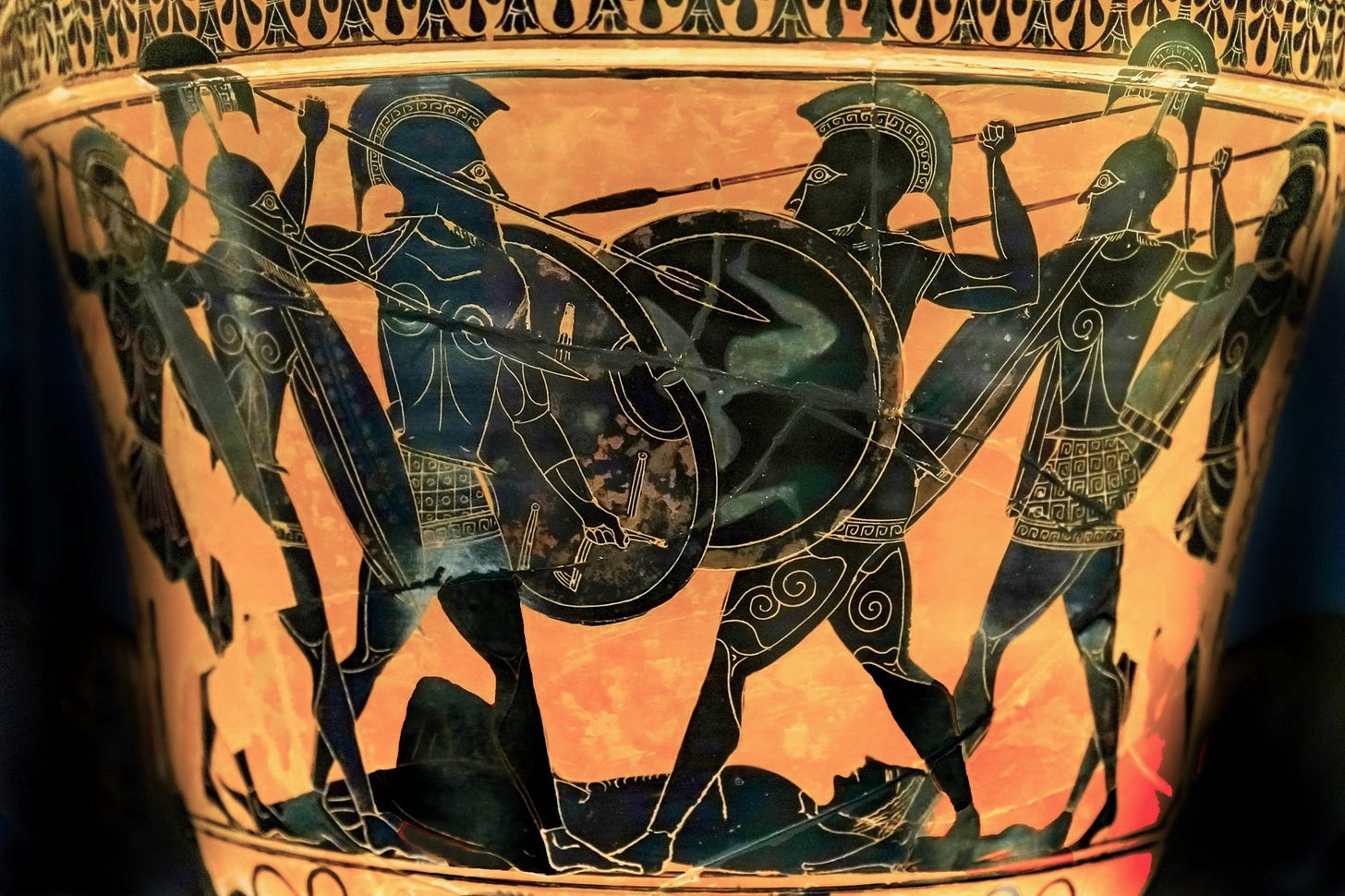Homer is an octavist, an introduction
By which I don’t mean an activist for octopi, though he may have been that too

A couple years ago I reread Homer, both the Iliad and the Odyssey, for the first time in a quarter century. I dove in merely for the sake of it, because it had simply been far too long. I had no agenda or expectations. Before I could get very far, though, I was taken aback by what I couldn’t avoid seeing. At the time I hadn’t ever seen the octave shape outside settings that were either Christian or strictly natural, such as the heptatonic music scale. Chiasmus I had seen, sure; that’s everywhere like the pentatonic music scale. But there it was in little ol’ pagan Homer, clear as day — indeed, perhaps on account of the heptatonic music scale: The twenty-four books of the Iliad were a triad of octaves (8 + 8 + 8). Checking the pattern against the twenty-four books of the Odyssey, I felt I could confirm the pattern’s existence as purposeful, though there was definitely something plagal going on in the latter epic. Because my interpretation of the octave pattern is strictly Christian, though, its existence in Homer raises not a few questions.
My insight, I should say, pertains only to the overall outline of books within these two epics. I’ve studied ancient Greek, but not Homeric Greek, which entirely confounds me. I can’t say whether there’s any fractal action going on. I wouldn’t expect any, but then I didn’t expect any macro pattern either. Both epics are written in dactylic hexameter, which is to say, each line of verse is made up of six units of two or three syllables called dactyls. If a sabbath rest is inferred between lines, this pattern could be interpreted as heptatonic (see image and caption above), but then nowhere is there a concrete octave. Each twenty-four–book epic is a triad not of heptads or even hexads, but ogdoads.
I did, though, pick up on one little ogdoadic sequence in the twenty-third book of the Iliad, which I can share here at the start as proof of concept. At the funeral for Patroklos held after the death of Hektor in the Iliad’s penultimate book, the Achaian warriors rest from fighting and hold some athletic contests. [For the spelling of these Greek names, I draw directly from my preferred translation, that of Richard Lattimore, The University of Chicago Press, 1951.] There are eight such events, though the eighth is forgone since, with King Agamemnon participating, there isn’t any contest. The eight events consist of a pentad of bouts followed by a triad of projectile competitions.
Keep reading with a 7-day free trial
Subscribe to The Cormac Jones Journal to keep reading this post and get 7 days of free access to the full post archives.

